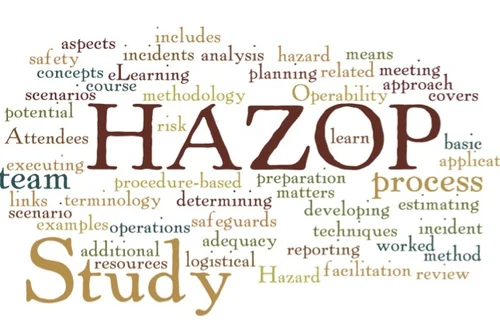MBA Assignment Help: How to Get the Best Assistance Online

Understanding MBA Assignments and Their Importance
MBA assignments are an essential part of business management studies, designed to test a student’s analytical, strategic, and decision-making skills. These assignments often require in-depth research, application of business theories, and practical problem-solving approaches.
Unlike general academic tasks, MBA assignments involve case studies, market analysis, financial forecasting, and strategic planning. The complexity of these tasks makes it essential for students to adopt a structured approach to complete them effectively.
Challenges Students Face in MBA Assignments
Many MBA students struggle with assignments due to various reasons:
-
Time Constraints: MBA programs demand extensive coursework, making it difficult to dedicate time to assignments.
-
Complex Business Concepts: Understanding and applying business theories like Porter’s Five Forces or SWOT analysis can be challenging.
-
Data Analysis and Interpretation: Assignments often require handling large datasets, which can be overwhelming without proper statistical knowledge.
-
Referencing and Citation: Using APA, Harvard, or Chicago styles correctly is essential to avoid plagiarism.
-
Lack of Resources: Access to updated case studies, business reports, and academic journals is crucial but not always available.
Identifying these challenges allows students to seek structured solutions for better academic performance.
How to Approach MBA Assignments Effectively
To excel in MBA assignments, students should adopt a strategic approach:
1. Understand the Assignment Requirements
Before starting, carefully read the guidelines provided by the university. Identify the objectives, word limit, and evaluation criteria. Clarifying doubts with professors can prevent misinterpretations.
2. Conduct In-Depth Research
Gather information from credible sources such as business journals, industry reports, and case studies. Websites like Harvard Business Review and McKinsey Insights offer valuable insights.
3. Develop a Clear Structure
A well-organized assignment typically includes:
-
Introduction: A brief overview of the topic and its significance.
-
Main Body: Detailed analysis with business theories, real-life examples, and supporting data.
-
Conclusion: A summary of key findings and recommendations.
Using headings and bullet points enhances readability and logical flow.
4. Incorporate Business Theories and Models
MBA assignments require applying frameworks like:
-
PESTEL Analysis: Evaluating external factors affecting business operations.
-
SWOT Analysis: Identifying strengths, weaknesses, opportunities, and threats.
-
Balanced Scorecard: Measuring organizational performance beyond financial metrics.
Understanding these models and their relevance to the assignment topic strengthens the argument.
5. Utilize Real-World Examples
Referencing recent business events, company strategies, or financial trends adds authenticity to the assignment. For example, analyzing how companies adapted to digital transformation during the pandemic can support business strategy discussions.
6. Follow Proper Citation Guidelines
Plagiarism can lead to severe academic consequences. Use referencing tools like Zotero or Mendeley to manage citations accurately.
Where to Find Reliable MBA Assignment Assistance?
Students looking for structured guidance often explore various options:
1. University Resources
Many institutions provide academic writing centers, business case repositories, and research databases to assist students.
2. Online Learning Platforms
Websites like Coursera, edX, and Khan Academy offer free courses on business research and report writing, which can improve assignment quality.
3. Professional Assistance for Complex Tasks
For students who require expert guidance, seeking help from professionals can be beneficial. They provide well-researched content, ensuring clarity and coherence in assignments.
For those looking for structured assistance, they can explore resources available for Do My MBA Assignment Online that align with academic standards.
The Role of Dissertation Help in MBA Programs
In addition to assignments, MBA students often need to complete dissertations, which require in-depth research and analysis. A dissertation contributes significantly to academic performance and future career opportunities.
When working on dissertations, students should:
-
Select a relevant and researchable topic.
-
Develop a strong research question and hypothesis.
-
Collect data from credible sources.
-
Analyze findings using appropriate methodologies.
For structured guidance, students can explore Dissertation Help Online in UK to refine their research approach.
Key Takeaways for Successful MBA Assignments
1. Time Management is Crucial
Setting a timeline for research, writing, and revisions prevents last-minute stress.
2. Use Reliable Data Sources
Avoid relying on outdated or non-credible sources; prefer industry reports and peer-reviewed journals.
3. Maintain Academic Integrity
Ensure proper citations and avoid excessive paraphrasing.
4. Proofread Before Submission
Grammar, structure, and formatting errors can affect grades. Using tools like Grammarly helps refine the final draft.
Final Thoughts
Completing MBA assignments successfully requires a combination of research skills, business knowledge, and structured writing. By following a systematic approach and utilizing available resources, students can enhance their academic performance. Understanding business theories, integrating real-world examples, and ensuring clarity in writing are essential to excelling in MBA coursework.
By applying these strategies, students can manage assignments efficiently while developing critical business skills necessary for future success.







